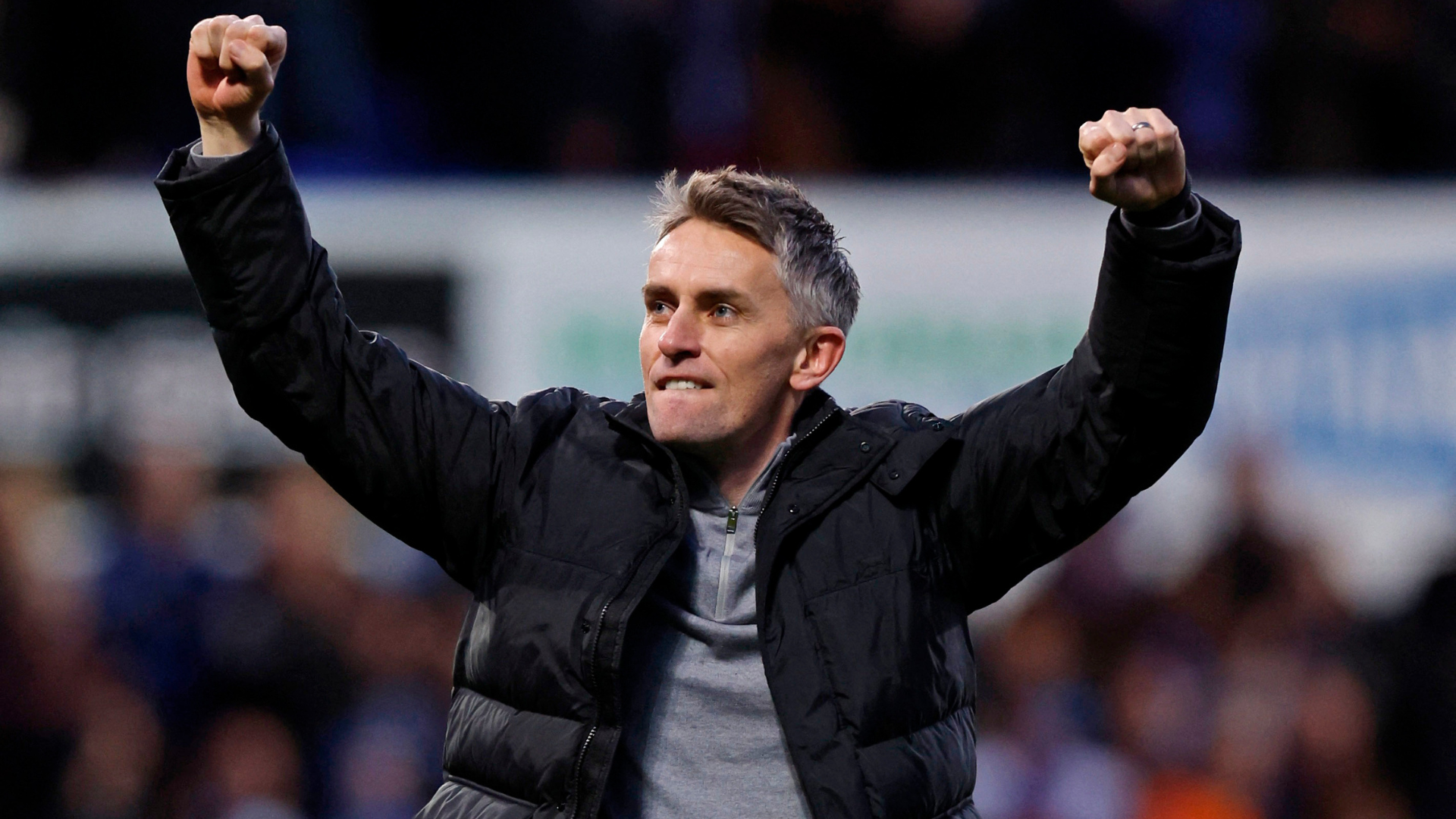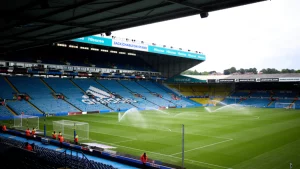In Part One I discussed the poor recruiting under Marcus Evans (ME). In this second part I wanted to start by discussing his manager appointments before going onto financial matters.
We forget how incredibly lucky ITFC was in the appointments of Alf Ramsey and Bobby Robson. Alf Ramsey had been a fine player and had represented England but had not managed a football club previously.
Bobby Robson had also represented England but his first foray into management with Fulham resulted in relegation from the old First Division. In modern football it’s hard to imagine a manager who fails in his first job being given another opportunity by a top-flight club. ITFC took that risk and it paid off but only after a few seasons of struggle.
It’s easy to criticize ME’s appointments with the benefit of hindsight. Jim Magilton had done a reasonable job as manager for three years up to April 2009 when he was replaced by Roy Keane. There were some grumblings about the sacking given that he was a fine former player and had been constrained by a modest player budget. However, the consensus was that it was a good decision.

Keane had been a dynamic player and possessed a personality that most people believed drove those around him to success. In his first manager’s job he took Sunderland to the Premier League with a huge tally of points. Expectations were that he would do the same with ITFC. There will always be speculation about why the methods he employed at Sunderland didn’t work at our club.
Paul Jewell became the second manager to be appointed by ME in January 2011. Again, it was widely seen as a good appointment. He had achieved promotion to the Premier League with two clubs – Bradford City and Wigan Athletic. Surely he could do the same with a bigger club like ITFC? But it wasn’t to be.
When Mick McCarthy became the next manager in October 2012 the thinking was he was the right man for the job. He was highly experienced having managed the Republic of Ireland and his resumé included two promotions to the Premier League with Sunderland and Wolverhampton Wanderers.
There were some misgivings about his style of play. However, what overrode everything was the thinking that ITFC had a soft underbelly. The players had become too comfortable drawing fat salaries for mid-table mediocrity in the Championship and a no-nonsense guy like McCarthy would shake things up.
During McCarthy’s near-six years in charge we saw awful football, constant abuse and belittling of the fans. His response to criticism of the style of football was that his hands were tied thanks to the modest player budget. As all this was happening an increasingly disillusioned ME looked on, unsure of what to do next.
We then had the three Pauls – Hurst, Lambert and Cook. They were all failures with Paul Hurst being the biggest one. He recruited a host of League One quality players who he thought could succeed in the Championship only to set up the club for relegation.
It’s easy now to be critical of those appointments. All six of the managers ME selected had very good resumes. With the possible exception of Paul Lambert, due to his Norwich City connections, the reaction from the fans at the time the appointments were announced was generally enthusiastic.
If you appoint six well-credentialed managers and all six fail you can’t say it was down to poor decision-making. It would be fairer to say that luck or circumstances played a major role.
You could just as easily argue that luck was not the major determinant. The new money attracted a mercenary type of player which the new regime didn’t have the nous to detect. It could also be argued the appointment of managers with a history of achieving promotion looked formulaic when a bold approach would have served the club better.
So, the ME interregnum failed. Some of it was due to poor judgement and leadership while some of it came down to what can be described as luck or the vicissitudes of football.
In the final analysis how did ME fare financially? The answer is he lost a significant amount of money but because of limited disclosure it isn’t possible to say precisely how much.
At the time of the takeover by Gamechanger he was owed £96.4m made up as follows:
– £38.5m in loan notes
– £50.4m lent to the club to cover operating losses
– £7.5m in dividends accrued on preference shares
As is well known, the loan notes relate to the financing by Norwich Union in 2001 for ground improvements. When ME took gained control, the amount outstanding was £27.1m. He was able to negotiate a settlement of the debt, and based on some of the reports at the time, he paid as little as £10m to take it over.
In the accounts this loan was stated at the original £27.1m. Interest continued to accrue until 2012 when the practice was stopped and by that time the book value stood at £38.5m.
The accounts show the loan notes and the advances to cover operating losses were settled by Gamechanger and are no longer on the balance sheet but we don’t know how much ME was actually paid to agree to have them discharged.
ME had injected capital of £8.1m into ITFC by way of preference shares which allowed for a cumulative dividend of 7% p.a. At the time of the takeover the accrued dividends were £7.5m.
The preference shares themselves were transferred to Gamechanger. There was also a settlement of the £7.5m outstanding in accrued dividends. But again, we don’t know the terms.
Gamechanger now stands in the shoes of ME in respect of the £8.1m in preference shares As at 30 June 2023 accrued dividends were £1.3m.
For the sake of completeness, it’s worth mentioning that at the time ME took over the club there were debts outstanding to Barclays Bank and the Royal Bank of Scotland for a total of £5.1m. It appears these debts were paid out from ITFC’s own funds, helped by the equity injections from ME
ME still has a small interest in ITFC. He paid £3.9m to acquire ordinary shares which gave him an 87.5% stake with the fans owning the remaining 12.5%. Following this capital injection, there were 18,047,872 shares on issue. ME subsequently sold 95% of his shares to Gamechanger and again we have no way of knowing how much he was paid.
Finally, it’s possible, even likely, there is a contingency agreement in place whereby ME receives further payment should ITFC be promoted to the Premier League. If there is to be a further payout, it could have implications for funds available for the playing squad and improvements to Portman Road.
In 2021/22 Gamechanger contributed £19.25m in capital and was issued 55 million ordinary new shares. In 2022/23 it injected a further £29.5m and was issued an additional 84.2 million shares.
This has had the effect of further diluting the ownership interest of ME and the fans to virtually zero.
Gamechanger has now been in control for three years and in that time it has transformed ITFC. Their key appointments, Mike O’Leary as chairman and Mark Ashton as CEO, are highly capable and have a good understanding of the modern game. They are also attuned to the culture and traditions of ITFC.
The new management style off the pitch, the capital injections totaling an amount of almost £49m and the inspired appointment of Keiran McKenna as football manager have created a new vibrancy around the club.
The football is attractive to watch, attendances are the highest in ITFC’s history, the appearance of Portman Road has improved with plans for major upgrades and, most importantly, promotion to the Premier League is tantalizingly close.
There is one financial aspect that warrants further investigation. In the 12 months to 30 June 2023, the last year for which accounts were filed, club turnover increased by £8.2m (from £14.5m to £22.7m) thanks to higher attendances and commercial income. However, operating expenses increased by £11.6m (from £26.5 to £38.1m). It largely explains why the club’s operating loss increased from £12.6m to £18.2m.
The blowout in operating expenses cannot be explained entirely by higher salaries. The notes to the accounts reveal that aggregate wages ie. player and non-player wages increased from £16.4m in 2022 to £19.8m in 2023.
The improved maintenance of Portman Road has been welcome but this expenditure also is unlikely to explain the significant increase in operating expenses.
ITFC has been transparent overall but I’m sure fans generally would like to see more detail about the spending of club funds.
We have to remember Gamechanger is not a charity; it is a pension fund with the objective of maximizing the return to its members. At some point it will look to extract value from its investment.
We’ll just have to wait and see how it goes about this and what sort of club ITFC will be in the long term.
GET MORE NEWS HERE



